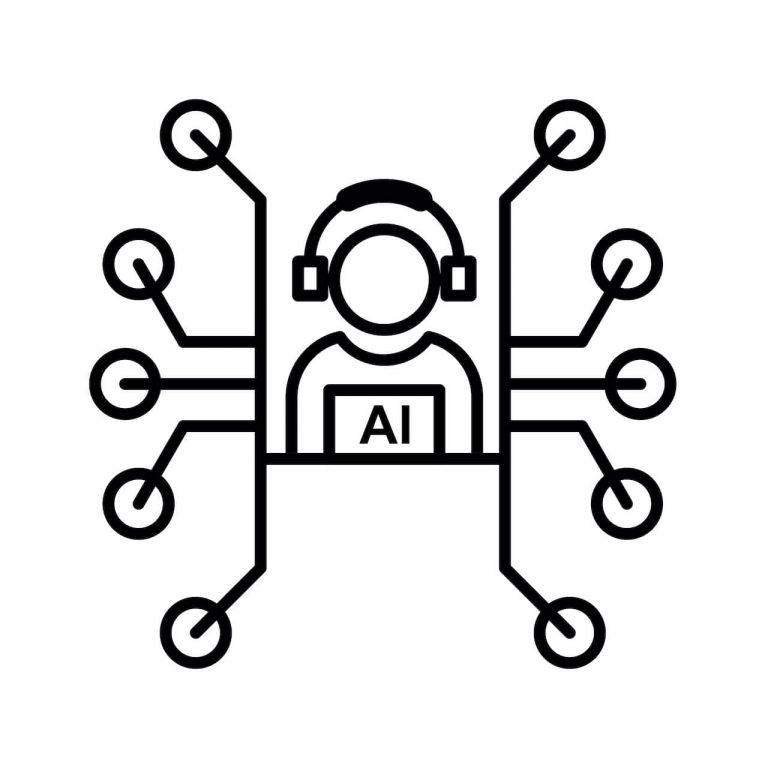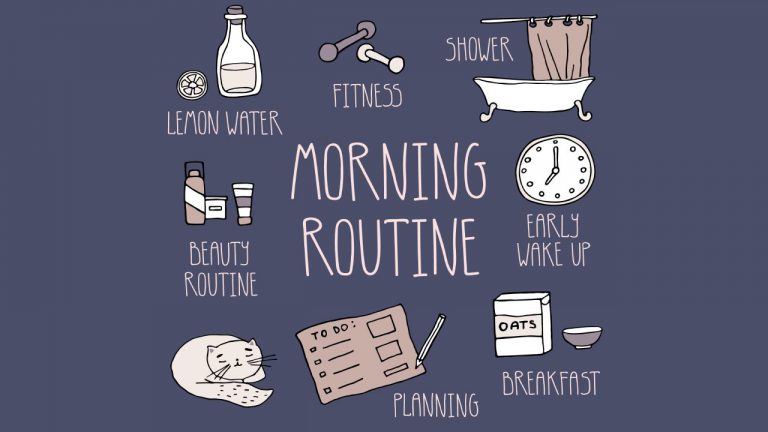Time Management Icebreaker (Games & Activities)
Do you have trouble with time management? Have you had to work overtime for days to finish your work? Do you wish to get your job done quicker and enjoy some free time?
Well, you’re at the right place.
If you’re an employer looking to improve focus and time-keeping in the workspace, or you’re here to seek guidance for yourself to make daily errands quicker. Either way, we’ve got your back.
In the long run, strict deadlines and stern reprimands hardly ever ensure punctuality and time management. Instead, you must engage your brain in a fun and interactive activity to improve focus. That’s precisely why we’ve compiled a list of time management games to enforce tardiness.
Here’s everything you need to know about the benefits of time management skills and how to learn them entertainingly.
What are Time Management Activities?
Time management activities are a set of specifically curated exercises to improve focus and efficiently use time. A time management game can be a great way to introduce this skill to kids and adults. This genre of games is designed to make the player’s brain work faster and wiser while completing multiple tasks.
These games usually have a specific time limit in which the participant has to complete the tasks efficiently. This article will discuss different kinds of offline and online time management activities that will help you and your team enhance their skills.
Benefits of Time Management Skills
Here are the few main benefits of introducing time management activities in your life or workplace:
Teamwork
When these exercises are practiced in groups, they teach the participants to collaborate. In addition, it helps them build a sense of community to achieve goals collectively in a given time.
Not only does teamwork reduce the stress of work, but it also ensures more creativity due to the combination of different thoughts and ideas.
Problem Solving Skills
Another advantage of introducing a time management activity among your colleagues or friends is increasing everyone’s problem-solving skills.
They improve your cognitive functions, which in return help you think faster. These solving skills can be a great help in your business and everyday life.
Meeting Deadlines
These activities also play a significant role in improving your timing skills. They also give you a sense of achievement once the assigned tasks are completed on time.
The participants then try to replicate the same sense of achievement in real by efficiently meeting the deadlines.
Productivity
A boost in your productivity is also one of the many benefits of these activities. Improved productivity means you submit high-quality work in the required quantities at the given time.
With continuous practice, you or your employees will double their productive time and make the most out of the work hours.
Organization Skills
Lastly, these games improve your organization skills which is an essential skill to have. You can’t achieve your goals if your brain and workplace are all messed up.
These games help you prioritize the most critical tasks first and sort the rest into other categories to help you finish your work in an orderly manner.
13 Games for Time Management Training
Here are 13 offline and online games for practicing time management:
Offline Time Management Training Activities
These offline games are great for small groups of friends or employees to boost their time management skills:
Ace of Spades
Ace of spades is a game about teaching the importance of organization and how it helps save time.
For this activity, you will need two decks of cards. Divide it among two participants and ask them to find the ace card. The person to find the ace card first will be the winner.
They don’t know that one deck is organized from ace to king while the other card is disorganized, with half the cards facing up and half of them facing down.
The person with an organized deck will find it easier to find the ace card. On the other hand, the person with a jumbled-up deck will find himself frustrated and unable to find the said card.
This will teach the players how an organized workspace or routine will help time management.
Ribbon of Life
For this time management exercise, you will need a 100 cm ribbon and a pair of scissors. Each centimeter of the ribbon represents one year of your life.
Here is how the ribbon can teach you a vital lesson about time:
- The average age of a human is somewhere between 70 to 75 years. So cut 25 cm off the ribbon so that you are left with 75 cm of the length.
- Most people enter their professional life at the age of 24 to 25. So cut 25 cm off that ribbon so that you are left with 50 cm.
- Each year we have 52 Saturdays and 52 Sundays, and if we multiply that by 50, we get 14.28 years. So cut 14.28 cm off the ribbons that represent your non-productive days.
- Count ten public holidays and multiply them by 50, and there go another 1.5 years from that ribbon.
- The average sick or annual holidays count for 40 days, multiply this figure by 50, and you get five years. Cut another 5 cm from your ribbon, and you are now left with 29.5 years only.
- We sleep an average of 8 hours per day, and if we multiply it by 50 years, we get 17 years of the time we spend in bed. Cut another 17 cm off the ribbon.
- We aren’t finished yet! An average person spends 2 hours eating and drinking. Multiply it by 50 years, and you’ll get somewhere near four years. So go ahead and cut 4 cm off the ribbon.
- Lastly, the average time to commute to work is 1 hour per day which takes two more years from the 50 years.
- Now we are left with six years of productivity only. How efficiently you utilize these six years will make or break your life.
Mayo Jar Activity
For this activity, you will need a large jar. First, fill the jar with large rocks till they reach the top. Then, ask your teammates if there is space for anything else in the jar.
Most people might say ‘No,’ as the jar already looks full. Now carefully add small pebbles to the jar and fill up all empty spaces in the jar. Next, fill the jar with fine grain sand and allow it to fill every nook and corner of the jar.
The jar represents you, and the large rocks represent your family, relationships, friends, work, and health. The pebbles represent the other less essential things in life like cars, travel, etc. Lastly, the sand represents the least important things in life that you can live without.
The mayo jar activity demonstrates the importance of first completing the biggest and most important tasks. Then, prioritize the smaller and less important tasks for later. It improves your efficiency along with your organizational skills.
The Big Picture
The big picture jigsaw puzzle challenge requires two teams to play. Once you divide the group into teams, give each team a jigsaw puzzle of an equal difficulty level. However, could you not give them the final image?
The team that completes the task first will win. Meanwhile, interrupt the process every three to four minutes and ask if something is missing or if they need something. Eventually, the teams will ask for the big picture to help complete the puzzle.
This demonstrates the importance of having a clear vision of the result to help you fit each piece in the right place. Without the availability of the big picture, you will spend most of the time running here and there, finding clues about the next step.
The Time Management Icebreaker
This activity is a small icebreaker to help team leaders discuss the importance of time, planning, and organization.
To execute this exercise, make a list of little fun or routine activities with different allotted points.
The point value should be according to the difficulty of the task. Give them 10 to 15 minutes to complete the tasks and accumulate as many points as they can. Once done, have a detailed performance review with each team member.
Ask them the reason behind choosing specific tasks, what strategies they used to complete the tasks effectively, and how they organized each step. It will promote a productive discussion among the team leader and the members.
Lastly, let the team conduct the following performance review on their own. Allow the team to discuss their strategies and what they could have done to improve their performance.
Circadian Rhythm
Ask the participants to divide their day into different hourly blocks for this game. Then, ask them to identify if they are on fire, vibrant, on cruise control, at 70%, distracted, slowing down, tired, or hungry.
Ask them not to focus on the workload and instead focus on what they are feeling at the moment. If they are productive, they should fill the block up with “on fire.” If they feel sluggish, they can choose to write “tired” or “slowing down.”
Ask the team members to post their sheets on the board. This will help them figure out their own and colleagues’ body clocks pointing to their productive and non-productive time.
Finally, ask them to put the money value on their most productive hours and see how much they could have made if their days were more strategized and organized.
Delegation Skill Practice
For this fun activity, you will need three colleagues who will be delegator, employee, and observer. The delegator will delegate his most challenging task to the employee and explain all the steps in detail.
Make a delegator observing sheet and give it to the delegator and employee. This will help the delegator explain the task efficiently while the employee jots down the instructions. Observe the sheet to know how well the task has been delegated.
Play three rounds of this game, so each participant gets the chance to delegate the task. It will improve the delegation and team-building skills of the members.
Time Wasters Exercise
All things that slow down your productivity or become an obstacle in achieving your day’s goal are known as time-wasters. Therefore, it is essential to eliminate all the time-wasters to meet deadlines and prioritize tasks efficiently.
In this time management activity, divide the teams in your workspace into smaller groups of two to three people and give each group an envelope with a blank card.
Each envelope will have a time waster mentioned on the back like social media, unexpected visitors, complex to-do lists, and excessive calls.
All the groups are supposed to write how these time-wasters affect their productivity and, at the same time, come up with a solution for that.
Online Games for Time Management Training
These online games are great for playing in between a zoom training session with your colleagues or on your own with other virtual players:
Game Dev Story
As a video game developer, this game is about you making hit video games and brand new consoles in start-up projects. To gain and maintain success in this game, you must hire and build a team of professionals.
This team will help you control the process of game development and deal with the critics. In addition, it allows you to control your workers’ work speed and quality development.
Besides time management, you’ll also learn leadership skills while playing Game Dev Story. In addition, since you’ll sell and advertise your product, you’ll also learn some business skills.
Plague Inc
In this dark game about disease and infection, you get to play the antagonist who causes the plague. It is a strategy game where you must contaminate as much of the world as possible.
Your enemies in Plague Inc are the world science communities. They will work against you and develop effective medicine to get rid of the plague.
This game also improves critical thinking and decision-making in addition to time management skills.
You’ll have to pick the deadliest of viruses to fulfill your strategy. Fighting with science communities worldwide will improve quick thinking and analytical skills.
Farmerama
On a lighter note, Farmerama is a relaxing and soothing game while also teaching time-keeping skills. In this game, you get a taste of country life by growing your very own farm.
Other than that, you must take care of your animals and grow harvest. The coolest part is that you must protect your farm from out-of-the-blue alien invasions!
On the other hand, selling/buying plants and animals teach you practical marketing skills. You also get to participate in various farming communities, which teaches you teamwork skills.
Overcooked
Overcooked isn’t your average restaurant management game; it indeed takes things up a notch. Yes, you’ll have the standard tasks of keeping your customers happy and serving them food.
However, you’ll have to do all that in absurdly stressful environments.
That includes serving in a hot air balloon and the middle of the street. This game has a lot of obstacles to overcome as well as multiplayer mode.
Uniquely, it also offers diversity in cooking recipes. Other than that, it can also be a great way to engage remote teams in a fun time management activity.
Elvenar
Elvenar teaches you time managing skills by taking you into a fantasy world. Its landscapes, characters, dialogues, and tasks are unique and otherworldly. The main objective is to build a magical city that accommodates both elves and humans.
You’ll have to craft the necessary items for everyday use or decoration from the given resources. This game teaches critical thinking, decision making, and community work, aside from time management skills.
You get to upgrade buildings, research technologies, discover new provinces, and use magical powers to build your empire.
Why Choose Games to Teach Time Management
Science suggests that fun and engaging games help you learn faster and retain the information longer. Therefore, it is essential to engage in fun activities with your team members. They are a great way to learn leadership, business, and efficient project management collectively.
Not only will these games promote critical thinking, but they will also allow you to kick back and enjoy some fun challenges. So, why not learn in a way that will help you retain the knowledge for a long time while you enjoy the learning process?
Conclusion
While in a workspace, strict deadlines can be the worst enemy of your productivity.
But now you can improve your time managing skills by playing games that help train your mind for successful professional life. So time management training activities be the perfect addition to your life for improving your cognitive function.
If you’ve read our guide on managing time and how it changes your life, following deadlines will become easy. So try out these fun games to practice punctuality and time-keeping. Happy gaming!





